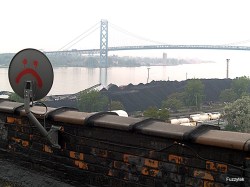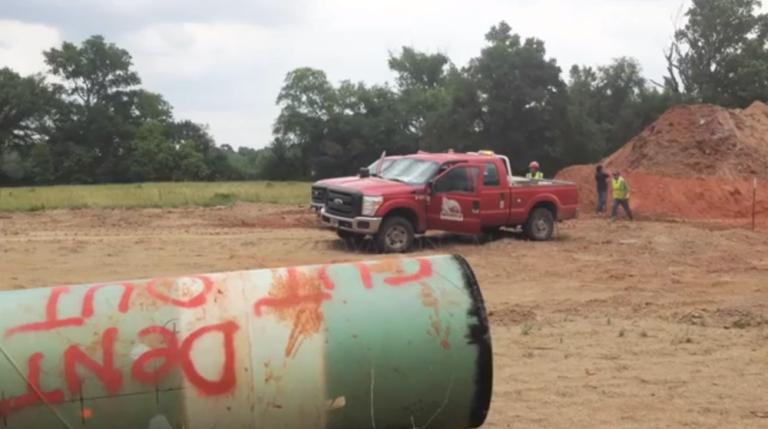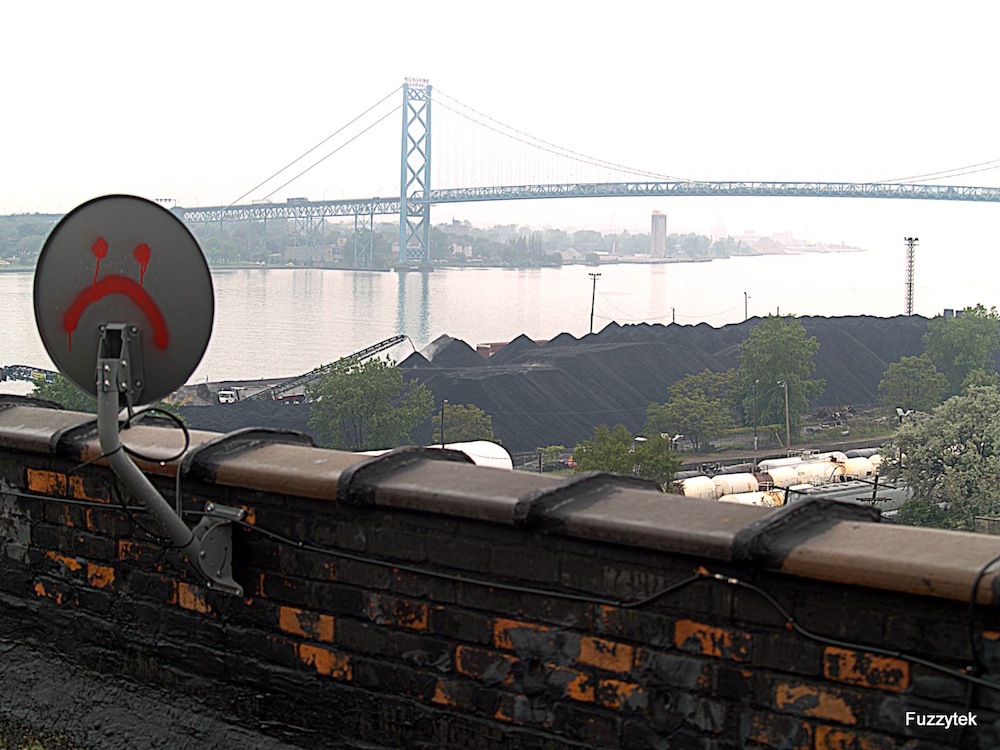
Detroit Coalition Against Tar SandsDetroit’s ugly petcoke pile
Residents of Detroit who’ve railed against the recent mushrooming of a three-story-high pile of petrochemical waste on their riverfront may be pleased to know that the petcoke is gradually being shipped back to Canada.
But while the news might be good for Detroiters, it’s not so good for Canadians — or anyone who cares about a livable climate. A Nova Scotia power plant is now burning the cheap, filthy fuel to produce electricity.
The petcoke is a byproduct of refining tar-sands oil, which began recently at a Detroit refinery. The pile’s growth over the past six months has disgusted residents and their elected leaders. Rep. Gary Peters (D-Mich.) introduced legislation in Congress that would direct the federal government to investigate the health and environmental impacts of the uncovered waste. A state lawmaker introduced a bill that would require such waste to be stored inside enclosed structures. And the Detroit City Council is mulling options [PDF] for dealing with the blight.
It’s difficult to legally burn petcoke for energy in the U.S. because of the pollution it creates, but power plants in other countries — like Canada, apparently — are happy to buy it up and burn it.
A Canadian electrical power plant, owned by Nova Scotia Power, is chipping away at the three-story-high, blocklong pile of petroleum coke on Detroit’s waterfront. The company is burning the high-carbon, high-sulfur waste product because it is cheaper than natural gas. …
Environmentalists were concerned not only about the impact of the growing pile in Detroit but also about where the material would be burned. …
The electrical utility’s use of petcoke, which is a particularly high emitter of greenhouse gases, feeds into concerns that the waste material’s unusually low cost and increasing availability in the United States may derail efforts to shift coal-burning power stations to cleaner natural gas.
Communities near oil refineries along the Gulf Coast and elsewhere in the U.S. can look forward to seeing similar piles of carbon waste as tar-sands oil imports ramp up, especially if Keystone XL is built.
Even in Detroit, the pile is not shrinking. As the Times reports, “Despite the regular visits to Detroit by ships to take away the petcoke, the oil sands bitumen refinery there is producing the material at a rate which means the waterfront pile continues to grow.”




